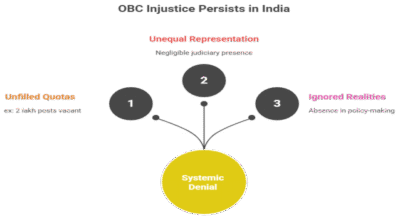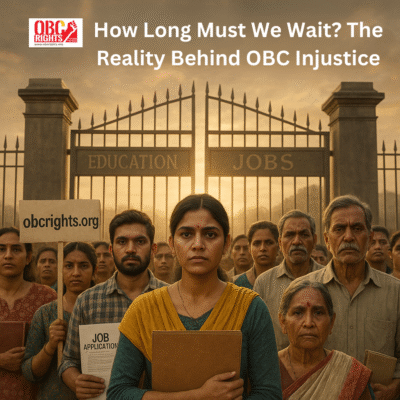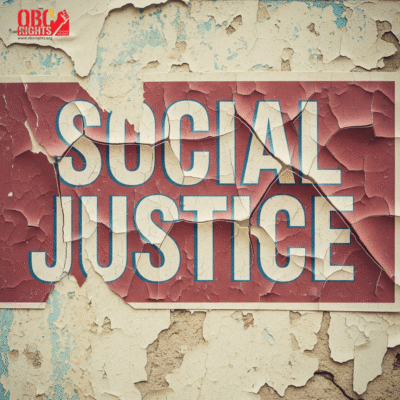For decades, millions of people from India’s Other Backward Classes (OBC) have waited for fair treatment—in education, employment, and representation in decision-making roles. Even in 2025, OBC injustice continues across the country. Though many people have made promises, not much has changed. That’s why the question remains: how much longer must we wait for real justice?
The Historical Roots of OBC Injustice
The idea of reservation was introduced to ensure social equity, not as a handout but as restitution. The Mandal Commission’s recommendations in the early 1990s were a milestone, officially recognizing the socio-economic struggles of OBCs. Despite this, systemic denial has ensured that benefits remain restricted, and implementation often falls short. Today, the fight is no longer about introduction—but about execution.
Unfilled Quotas and Unseen Faces
Even after 27% reservation was constitutionally upheld, government records reveal that over 8 lakh posts reserved for OBCs remain unfilled. Central educational institutions like IITs, IIMs, and NITs have regularly failed to meet OBC quotas in faculty recruitment. Worse, higher judiciary appointments remain glaringly unequal, with negligible OBC representation among High Court and Supreme Court judges.
This isn’t an oversight. It reflects the broader pattern of OBC injustice—a combination of institutional apathy, vague monitoring systems, and discriminatory gatekeeping in elite spaces.

Demanding Representation: More Than Just Numbers
It’s not just the statistics that matter in representation—it’s the presence, the voice, and the recognition. When OBCs are absent in policy-making spaces, their lived realities are often ignored. The absence of a caste census since 1931 is telling. Without updated data, how can equitable policies be formed?
A caste-based census would provide transparency and empower affirmative action rooted in real demographics. Refusing to gather this data is, in itself, a political act—one that perpetuates injustice by keeping OBC struggles invisible.
Awareness is Resistance
One of the most powerful tools against inequality is awareness. Yet many youth across India still hesitate to claim their rightful reservation due to social stigma or misinformation. Embedding constitutional knowledge about reservation policies in school and college curriculums is essential. When students understand the “why” behind reservation, they become allies in the fight for fairness.
What’s Next? The Path Forward
Fighting OBC injustice requires coordinated grassroots efforts and policy-level accountability. We must properly enforce OBC rights. To do this, we need independent monitoring groups—not controlled by political interests—at every level: local, state, and national.
Income ceilings for scholarships must reflect today’s economy, and the arbitrary application of the “creamy layer” rule must be revisited or eliminated.
OBC Rights / SFRBC continue to raise these demands at every level of governance—pushing for proportional representation, a nationwide caste census, and equal access to government institutions.
It’s time the nation confront the uncomfortable truth: justice delayed is justice denied.. For India to truly call itself democratic, it must ensure that every citizen—regardless of caste—has equal access to opportunity.

Conclusion
The struggle of OBCs is not about special privilege. It’s about addressing past injustices and creating equal opportunities for all. The longer we ignore the reality of OBC injustice, the more we betray the vision of an equal India. We deliberately avoid true and integrated development.
Through SFRBC and obcrights.org, we are amplifying the voices that have long been silenced, challenging discriminatory systems, and fighting for a fair future for all OBC communities.
The wait must end. The fight must continue. And we will not stop till affirmative action in its true spirit comes in.



